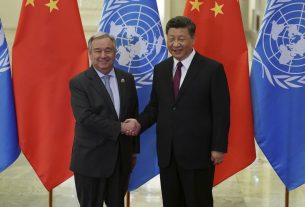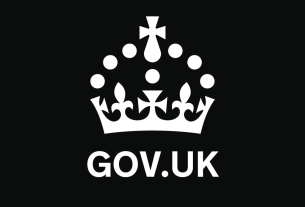Overview:
Deadly flooding hit central Africa during the D.C. conference, underscoring the urgency of climate adaptation investments and the clean energy transition
President Felix Tshisekedi, of the Democratic Republic of Congo (DRC), delivered opening remarks at the U.S.-Africa Leaders Summit forum about climate change on Tuesday.
The previous night, deadly floods had swept through the DRC’s capital city of Kinshasa, killing more than 160 people and displacing entire neighborhoods.
“Since we are gathered here to speak about fighting against climate change, I would like to speak first with regret to let you know [about] the crisis that my country has lived through in the past few hours,” Tshisekedi said at the forum. “That could have been avoided if the commitments of polluting countries would have been kept.”
The tragedy in Kinshasa highlighted the fact that conversations about the climate crisis at the summit were anything but hypothetical. Flooding has affected 8.2 million people in central and west Africa this year, according to an estimate from a U.N. humanitarian affairs office. More broadly, 17 out of the 20 countries most vulnerable to climate change are on the continent.
But vulnerability was not the only reason that conversations about climate loomed large throughout the three-day D.C. summit, which wrapped up Dec. 15. Sub-Saharan Africa’s booming population and unmet energy needs make the region’s choices critical to the world’s fight against climate change. The question of how the continent expands its energy access—using its fossil fuel stores or using renewable energy—will determine, in large part, the success or failure of the global climate fight.
The continent also holds around a third of the minerals required for many clean energy technologies. Massive forests and wetlands, especially in the DRC and Gabon, draw in huge amounts of carbon, keeping the planet-warming gas out of the atmosphere.
To protect those carbon sinks and transition to widely-available clean energy, African countries need investments from nations that have profited from more than a century of fossil fuel use and decades of colonial resource extraction. U.S. leaders, including Secretary of State Anthony Blinken and House Foreign Affairs Committee Chair Gregory Meeks, acknowledged the injustice at the summit.
“It’s both unfair and unrealistic to ask [African nations] to turn their backs on economic development and opportunity in the name of a clean energy transition, to ask them in effect to forgo what many of us have done in the past in developing our countries and our economies,” Blinken said at the forum on climate change and conservation.
The Biden administration has committed $1.1 billion to African-led efforts to support climate adaptation, conservation and a transition to clean energy, according to a White House statement. But the International Energy Agency recently estimated that Africa needs around $190 billion each year from 2026 to 2030 in energy investments to meet its climate and energy goals. That means more than doubling current investments. That financing must address not only clean energy technology, but also major infrastructure challenges.
“Unfortunately, the routes and the roads that we have were designed at the time for colonial trade, so it was meant to exit out of Africa, not to use it internally,” said Portia Derby, CEO of South African rail company Transnet, at a sustainability-focused business forum on the summit’s second day.
Derby also spoke about the continent’s reserves of minerals like cobalt and lithium, crucial elements in batteries and other clean energy technology. She emphasized the need for a “more mature partnership” between African countries and big investors like U.S. companies in order to change the dynamic of extractivism.
President Tshisekedi’s country includes some of the continent’s most mineral-rich lands, as well as large reserves of oil and natural gas. The DRC will likely continue burning those fossil fuel resources unless wealthier nations compensate for their financial loss with investments in cleaner energy options. In the meantime, the nation still remains one of the hardest hit by climate crises.
“You’ve just given us your condolences for the tragedy in Kinshasa last night, thank you for your condolences,” Tshisekedi said to Blinken prior to an official meeting between the two leaders. “But this is the very example of what we have been deploring for some time—countries who pollute unfortunately lead to negative consequences in our countries that cannot protect themselves.”



